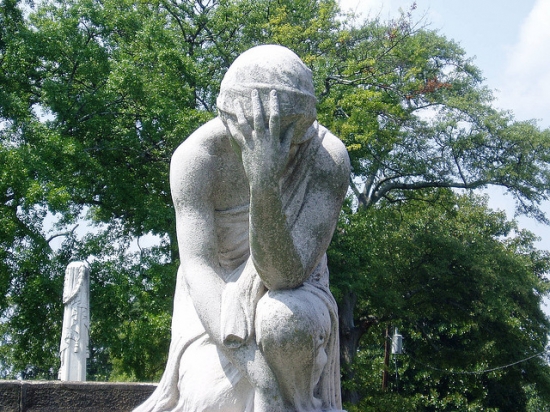
Photo Credit: http://www.flickr.com/photos/75001512@N00/234845751
Last August I saw an advert in The Jerusalem Post:
“ESRA is looking for English speaking volunteers to train in a Bereavement & Loss counseling course” and below it was a phone number.
It had been on my mind for some years now to do some kind of training in that area, but I hadn't really known where to start. I knew that most people in this field of work had degrees in social work or psychology. However I just felt that having experienced most of the nasty things that life can throw at us, and having come through them with the feeling that I had climbed mountains and come over the top and down the other side, maybe with what knowledge and wisdom I had gained along the way, I might be able help other people. This could be just what I had been looking for.
I called the number, and the voice that answered the phone had a Manchester accent, the same as mine. We chatted for a while and she told me she was Susan Kurnedz, whom I had known for many years in England. She was delighted that I had answered the call and told me that she thought that I would make an excellent counselor. Susan has had many years of bereavement counseling experience in the Manchester Jewish community, and after having made aliyah four years ago, she felt that it would be a great idea to get something like this up and running for the English speaking population under the ESRA umbrella.
Along with many others, I was summoned to an interview a few weeks later, in Netanya, where we were questioned and interviewed by Juliet Rostowsky an industrial psychologist, Noemi Berger a psychotherapist, and Judy Usiskin a social worker plus plus.
A few days later Susan called to tell me that they were welcoming me to join the team and to become a volunteer counselor.
The first meeting was held in September. Fourteen of us had been accepted to do the course, thirteen women and one lone man. Those early meetings were very special to all of us. One or two of us knew each other, but most of us were strangers to one another, hailing from England, America and South Africa. We spoke little about ourselves at those first couple of meetings apart from giving our names, where we came from and how long we had been in the country.
Training began. We were given role plays to see how we would handle various situations, and to see the kind of problems we might have to deal with. It was made clear to us that we were not only reaching out to people who had suffered bereavement, but to those people who might have lost jobs, money, even a pet, or simply their own self esteem, and needed a sympathetic ear to listen. It was during these weeks that a little of our own lives started to unfold. Many of the women had come to the course because they had already done counseling work abroad, and they brought with them their own wisdom and expertise; but many of us, like myself, had suffered a tragic loss, (I lost my daughter, aged thirty one, to leukaemia) and slowly, one by one, we told of our own losses and we cried together and hugged one other, and held each others' hands as the stories unfolded. The bonding that we felt towards each other was unique.
We learned listening skills. This is not easy if you tend to be a talker like me, but I listened and took it all on board. We learned not to advise but to suggest, we learned not to tell of our own experiences nor to reveal anything of our own lives, nor to say “Oh, I know just what you are going through, that happened to me!” and we learned to neither pre-judge our clients, nor criticize them.
These sessions went on for twelve weeks, with continuous role play, practicing listening skills, learning the difference between being a 'friend' and being a counselor by not becoming emotionally involved and being able to give empathy rather than sympathy. We all gave our opinions on how our 'cases' should be handled and we welcomed our lone male, Ralph, with his masculine point of view, which was usually refreshingly different from ours.
Then we were ready to advertise that we were now in business and ready to help.
The day Susan rang me and asked me if I would like a client was a big day for me, and it was not without nervousness that I set out on my first meeting with a bereaved elderly man who had lost his wife three months before. We are very lucky in the fact that we have various venues to work in. It was a strict rule not to meet in clients’ homes or in our own homes. It was to be on a strictly professional basis. My client was lonely, he dreadfully missed his wife of over fifty years, and we talked about his life and his marriage and his children. After a couple of meetings, the darling man tried to find out how old I was and if I was married, and with a sad nod of his head proclaimed that I “was too young for him!” I carefully suggested that he might like to invite some of the ladies he knew in for tea and I bade him a gentle farewell.
Many of our clients are elderly, but there are also the not-so-elderly people, coming to terms with the loss of their lifelong partners. Not all are bereaved, some are other types of difficult and complicated cases. Couples trying to make a go of it through monetary difficulties, extramarital affairs, job loss and loss of communication. These cases are handled by our counselors who have had many years experience in marriage guidance counseling. There are many lonely people who come to us. People who find themselves friendless and lacking the confidence to go out and make new friends. It takes a great deal of courage to make that first move and telephone us. It is difficult not to take peoples’ stories to heart, and not to take the 'work' home; after all we are all human beings with emotions, and to listen to someone's life unraveling before you can be heartbreaking.
We now come to monthly meetings and have 'hotlines' to call, to ask our own supervisors for advice. In addition to our original tutors we now have newcomer, Ivette Alfandary, a psychotherapist, who joined us later in the course. Our clients’ names are never mentioned, and they are referred to as 'my client'.
There was no better feeling than when I had helped a client through several sessions, and she turned round and said to me: “Thank you so much for helping me. Thank you so much for listening to me, I feel so much better”.
I honestly don't know who got more out of it, she or I.
This has to be one of the best things that I have done and there is a great deal of 'job satisfaction' in it. I am very glad that I have had the opportunity to do this course and to have met the wonderful people who are doing it with me.
We are now setting up a support group for all clients, who have been to us in the past as well as welcoming new ones.
We want people to know that we can help. It helps so much to talk out a problem, and for many it is so much easier to talk to a counselor rather than a member of the family or a friend.
We look forward to hearing from anybody who needs our help.
The first step is making that initial call to ESRAline, where the case will be assessed and an appropriate counselor recommended.
Please call or email Susan 052 698 9088
 DEAR EDITOR 153
DEAR EDITOR 153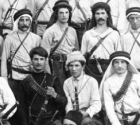 REVISITING THE PAST BETH HASHOMER
REVISITING THE PAST BETH HASHOMER BIBLICAL ZOOS & ANIMAL RESERVES IN ISRAEL
BIBLICAL ZOOS & ANIMAL RESERVES IN ISRAEL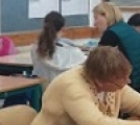 A Funny Thing happened
A Funny Thing happened 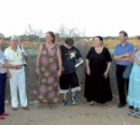 a village for young people with special needs
a village for young people with special needs NETANYA NEWS
NETANYA NEWS 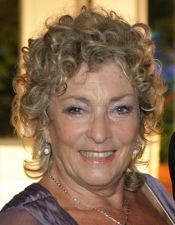 Linda Silverstone
Linda Silverstone